FOUR ENTREPRENEURS TALK ABOUT THE CHALLENGES AND TRIUMPHS OF THEIR BUSINESS' FIRST YEARS
The rewards of starting a business are definitely there, but so are the challenges — the long days, tough decisions and close calls.
Many ventures don't make it past year two. So we asked four Wichita entrepreneurs — from the video game startup barely a year old to the established franchise with restaurants covering most of the country — to open up about those first years. What we found was an array of stories and circumstances that all point to one fact: entrepreneurship is not for the faint of heart.
THE ENTREPRENEURS:
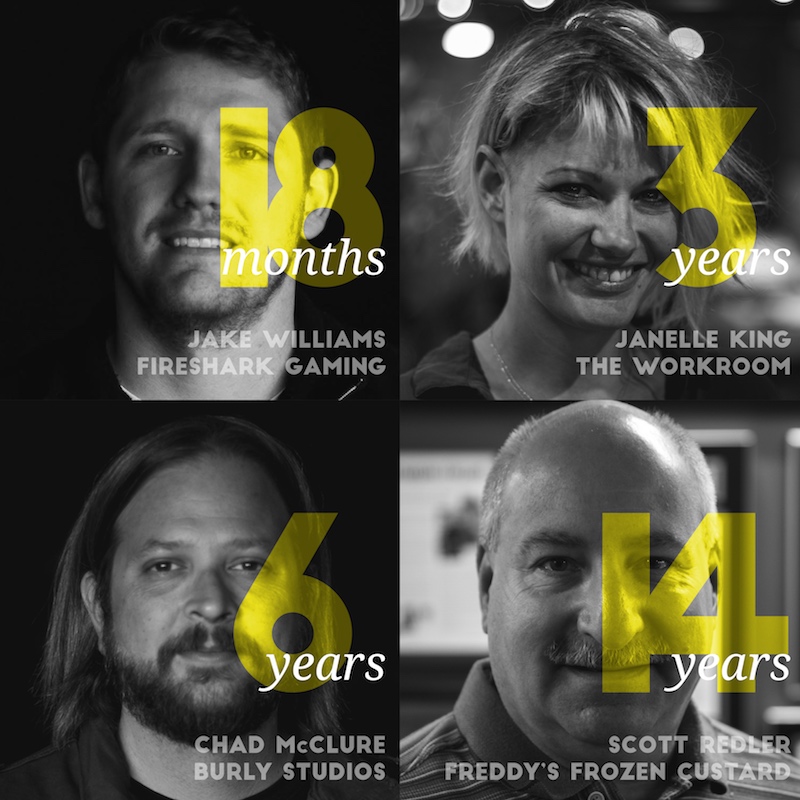
JAKE WILLIAMS - 18 months in business
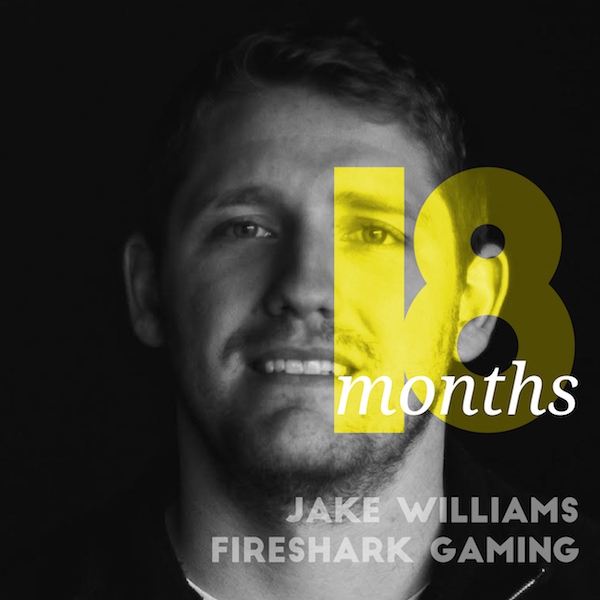
Jake Williams is the general manager of Fireshark Gaming and Fireshark Studios. He's been there since the beginning, at one time working out of the barn of serial entrepreneur Kent Johnson (Bold Software, Webcentric).
Since launching last year, Fireshark has developed two games, a retail space in northeast Wichita and a mobile trailer that delivers entertainment across the city.
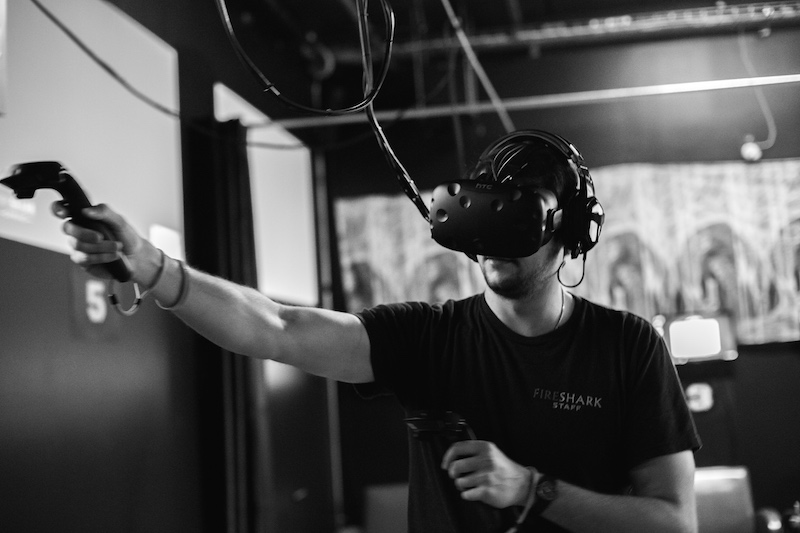
JANELLE KING - three years in business
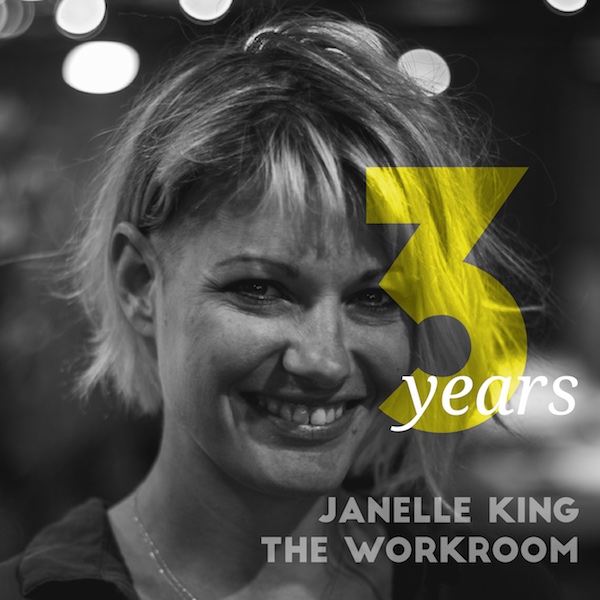
Janelle King is an independent interior designer who owns The Workroom, which offers services including custom drapery, bedding and pillows. The Workroom has also expanded retail offerings featuring mostly local gifts and decor, including Wichita "flag swag."
The Workroom launched in 2013 and has since become a staple of the Wichita pride movement.
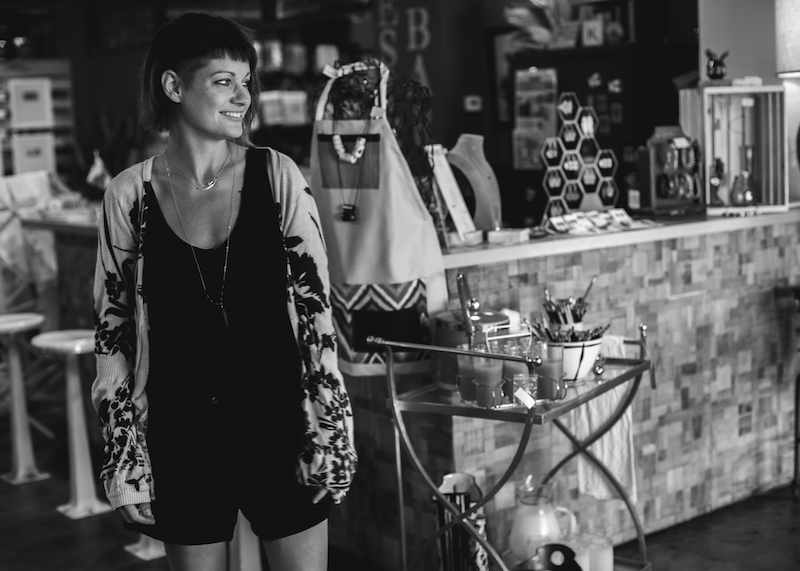
CHAD MCCLURE - six years in business
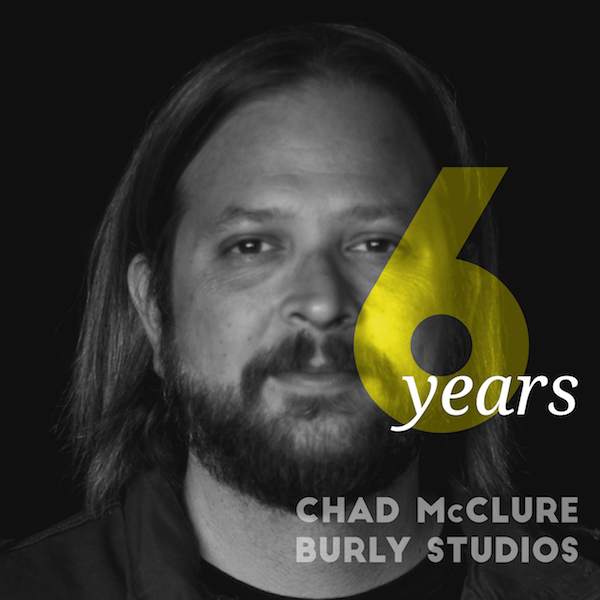
After working for more than a decade in motion graphics and animation, Chad McClure decided to create his own company, Burly Studios.
Six years in, McClure has gone from working out of his basement to shooting large-scale, live-action productions across the globe. His studio has worked with some of the world's largest brands while retaining a local client base.
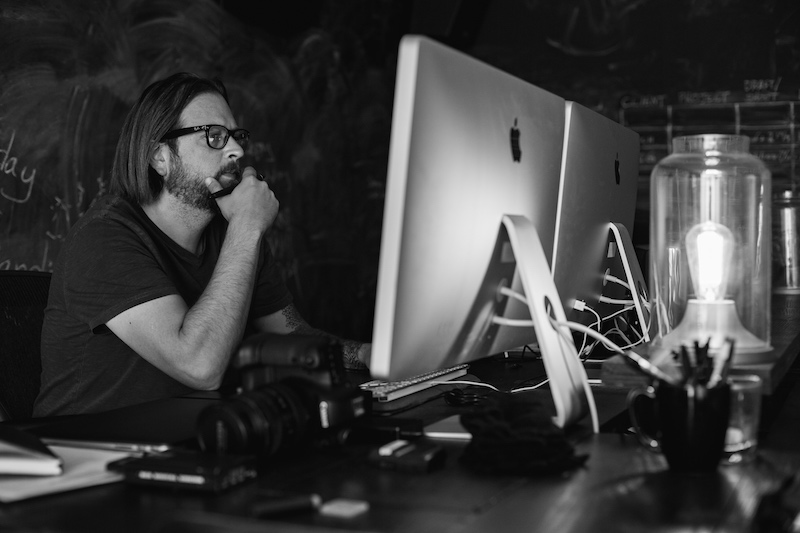
SCOTT REDLER - 14 years in business
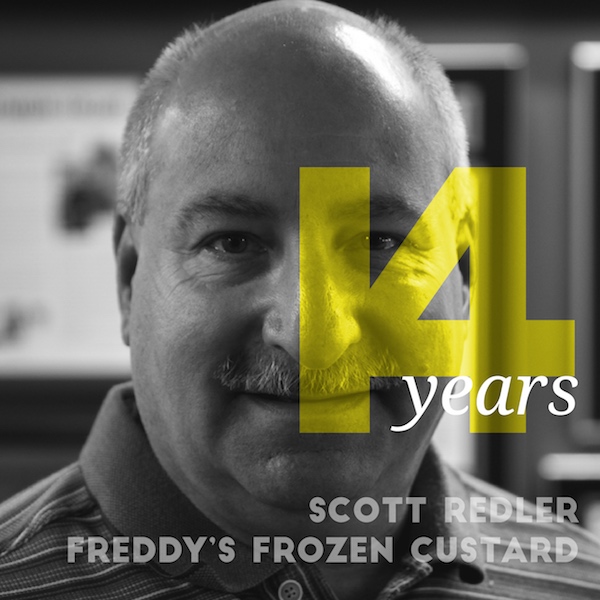
As co-founder and Chief Operating Officer of the fast-growing Freddy's Frozen Custard franchise, Scott Redler has a lot on his plate.
Redler opened the first Freddy's in 2002 along with brothers Bill and Randy Simon, whose father, Freddy, is the inspiration for the chain. Now, Freddy's employs thousands with more than 50 employees based in the Wichita corporate offices.
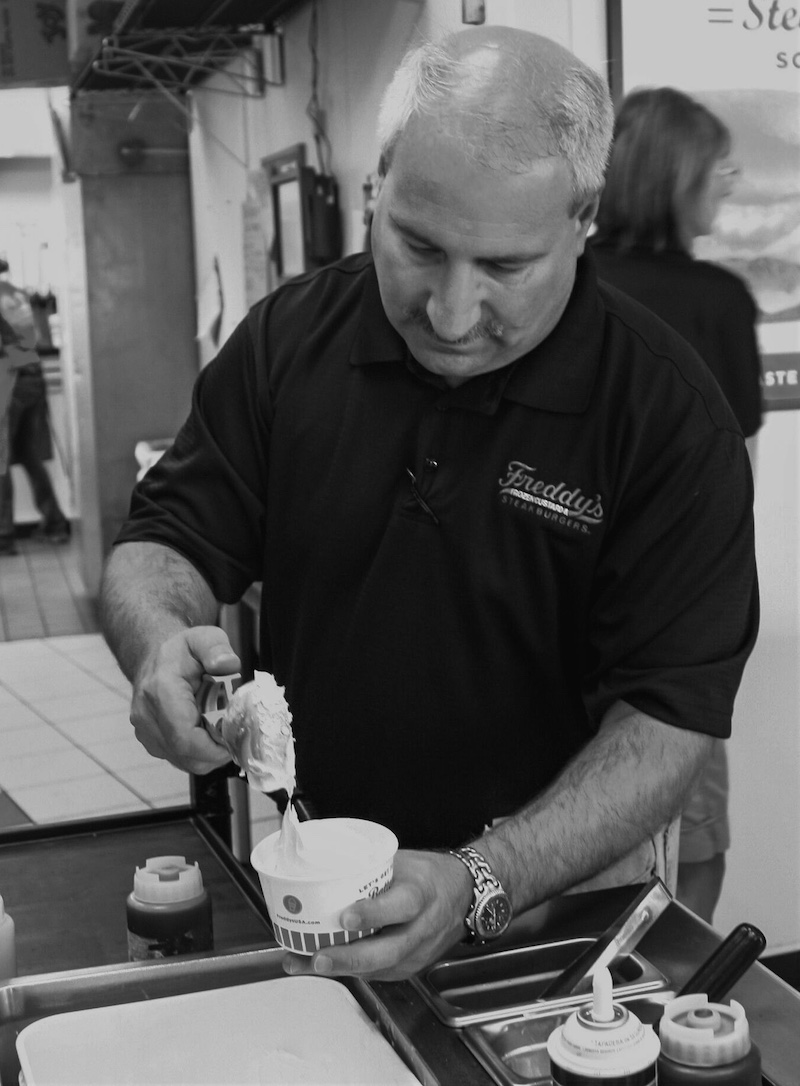
THE QUESTIONS:
We asked each of these entrepreneurs the same questions, in order to gauge how their experiences were similar, and how they were different.
What was the biggest challenge your business faced in its first six months?

JAKE: It had to be customer education and branding. Customer education early on is hard, especially with no brand recognition. Word of mouth really helps, though. If you do a ten-person birthday party, you have nine little marketers hopefully spreading the word for you.
The truck really came into play so we could go out to Riverfest and get in front of people, go out to schools and get in front of kids, and really educate them in what it is we do, and hopefully suck them in after that.

JANELLE: I would just say capital. I opened this business on minimal money, but you've got to market and promote yourself to get new business. If you don't have any money, you can't market, so then you can't get new business to create the money — you're kind of in this catch 22. We were on a true month-to-month basis, and sometimes still are.
My intention had been that my design business would be its own entity and the sewing workroom and this retail space were kind of an afterthought. But I found that all of it bleeds together and overlaps — every person is wearing every hat. That was something I struggled with at first, kind of trying to find our identity. Now it all seems a little more seamless.

CHAD: In the first six months, there was an onslaught of work. When people found out I was doing my own thing, I got hit up multiple times per day for projects. I had probably the best possible problem you could have in the first six months.
I learned very quickly to say 'no.' And that was really hard to do. But, basically I would take things that were a good fit for me and a good fit for the client. And the clients really respected that and they came back with work that was more up my alley.

SCOTT: Whenever you develop a new concept, the biggest challenge is to watch it to make sure you made a lot of good decisions at the beginning, and making sure things run as they are designed to.
We were pretty fortunate with the first menu. It's very humbling what we did — it was a lot of fun.
What was the biggest challenge your business faced in its first two years?

JAKE: We had to figure out how, as a business, we could expand our demographics and diversify the experience here in the store, so more people could be doing more things at once.
Now, people can come here to do our experience, but then we can use these other experiences like the virtual reality, or the racing pods to help bring people in. That kind of helps springboard our initial product.

JANELLE: The thing I think has been the biggest challenge has been the staffing and employee relations. I've done significant amounts of management in my past experience, but when I'm opening the doors, it's me and one other person — and then shortly after, it's me and two other people. So everything is personal.
Recently, I had somebody tell me, 'Hire slowly, fire quickly.' I wish I would have heard that sooner. It's something that, naturally, you want to give people more chances — more opportunities to help them if they're struggling. But a clean break is probably in the best interest — definitely for the business, as well as for the individual.

CHAD: Deciding to grow personnel-wise, or not. That was a tough one, because I think I started with the idea of getting specialists for projects and staying small, but instincts tell you to start hiring people.
But I followed my values. When you have a large overhead, you've got to take everything that comes in, and it may drown you. At that point, the product comes secondary to the overhead. So I want to keep the product first.

SCOTT: I think we were pretty fortunate getting the right people in place at the beginning, and we'd all done this for a long time — it's not like we walked in and this was our first rodeo. Just understanding the potential for the concept and just running great shifts day to day.
What was the biggest accomplishment your business experienced in its first six months?

JAKE: When we opened in April, it wasn't like that was the first day of work. We spent a lot of time before that developing our product — developing the games. The most refreshing thing was just seeing those reactions, especially at birthday parties. You don't want to ruin a 10-year-old's birthday party — you're the worst guy ever if you do that. We were really happy with the results when the kids saw the experience.

JANELLE: For our storefront, The Workroom side pays the bills. That's our bread and butter. I had a huge concern upfront that a designer is not going to want to bring their business to another designer — that they're going to feel competitive. Initially, I kind of kept my name out of everything and tried keeping it two separate entities. Come to find out, they didn't care about any of that. They just wanted to be provided great service. That was a huge thing for me.

CHAD: Honestly, I think the biggest accomplishment was just surviving. Not only did we survive, but we thrived by getting a bunch of work. I don't know how to explain it other than saying we got lucky.

SCOTT: When you first start a new business or a new concept, getting to the point of comfort where you're operating where you need to, I think that's a huge accomplishment. Doing it once at home is easy, but doing it 1,500 or 2,000 times per day, it's a different animal.
You set your goals and you set your expectations, but, like I said, you just have to roll with the punches. It's a never-ending kind of cycle.Jake Williams
What was the biggest accomplishment your business experienced in its first two years?

JAKE: Just being able to roll with the punches. You constantly have to try different things and you have to really keep your chin up. You're going to try different things and you're going to work really hard on them, and some of them are going to flop.
Kids are brutally honest. If you ask them if they had fun, they might say, 'Well, no.' But that's great feedback. We listen to our customer, and that's what I'm really proud of. As a team we've been able to stay optimistic and reach some of these benchmarks we've been hoping for.

JANELLE: By that two-year mark, we had identified ourselves as a place in town to go find unique, local-made items. We had really become identified within the local arts community as a go-to location. For us, that was huge.

CHAD: In the first two years, we went from pure motion graphics and animation to really embracing live action. So that was the biggest change.
My first camera I actually ever owned, other than what was on my phone, was the RED EPIC, so I really just dove in. I did not know if I was going to be good at that. I knew that I was intrigued by that, but I kind of took to it like a fish in water.

SCOTT: Eventually, we started franchising, and that was a huge step for us.
I think when you start a business, you have to have a certain level of naïvety. Otherwise you won't do it — it's paralysis by over-analysis. You can't dip your toes in it first, you've got to just jump in.Chad McClure
If you started your business over today, what would you do differently?

JAKE: Tons — I don't know if you have enough time. It's all learning. You try things and you adjust.
Just starting with our version two product would have been great, but any time you change a product, you're going to be making it better.

JANELLE: I know that if I were to put more intention on the hard lines and numbers, there would be — not necessarily better — but more profitable decision making.

CHAD: I would do nothing differently. I think when you start a business, you have to have a certain level of naïvety. Otherwise, you won't do it — it's paralysis by over-analysis. You can't dip your toes in it first, you've got to just jump in.

SCOTT: We'd already been in the business, so we understood some of the key components. I don't think there's anything significant that we would change. We were pretty fortunate.
What were the best and worst parts of your first two years in business?

JAKE: The best part was just being able to look back at our rolodex of products that we have. The store, we upgraded our product to the newer version, we've got the trailer rolling. Just a lot of different things that we've put a lot of blood, sweat and tears into that have come to fruition with not a very large team.
The worst part would just be when you work on products and they don't pan out and they're not as successful as you think. You set your goals and you set your expectations, but, like I said, you just have to roll with the punches. It's a never-ending kind of cycle.

JANELLE: After my mother had passed away, I had this dream concept that I would have this place one day that would sell art at all levels and would be this resource — not like your typical gallery. About two years in, I had an eye-awakening moment that, 'Oh my God, I completely created that without even intending to.' It just kind of organically happened.
The worst part was really the employee aspect. I feel it's very personal, and I love my employees and I want to take care of them. I know it's supposed to be business, but it's more than that.

CHAD: I think in the second year, it was just kind of one of those things of, 'Oh, this is actually working. This is viable.' I think there's a certain level of accomplishment to realize this crazy idea actually worked.
The worst part was the lack of work-life balance. It was something I never had, even for the first 10 years of doing what I do with freelance. It's crazy hours and it's a constant struggle.

SCOTT: The best part was getting a great, fresh, hot burger with hot fries, and custard that is absolutely crave-able. We understood we had something that works.
The worst part was probably when we were in the construction of our second location on Rock Road — we have some very funny stories with that. It was a remodel and we had put the tile on the floor and the roof wasn't on yet, and there was a tremendous downpour rain, so we took turns every two hours going in with a wet vac. It's just funny what you do when you need to.
What was your biggest motivation in those first two years?

JAKE: Obviously, we all put our names on it. You put your face in front of people — your friends and family — so you want it to be successful for that reason. But, really, the whole goal is to just add something to the market. You want to fill that gap.

JANELLE: Prior to me opening this, I had been working for another company. They went out of business and the job market sucked — this was in 2010 when I first went independent design.
At the beginning, that was really the motivation — creating a career for myself because there wasn't the right market there to provide that for me.

CHAD: Family — knowing that this needs to work. It has to be between that and the passion of the work. I'm doing what I'm supposed to be doing, I firmly believe that.

SCOTT: The motivation, really, was just executing at a high level. In restaurants, it's really about daily executions, shift-by-shift, meal-by-meal. Operating at that level, that's really the thing that we focus on.
Were there ever moments when you thought you wouldn’t make it to your second year? Could you talk about those moments?

JAKE: Yeah, definitely. There always are. As a business and a management team, you kind of sit down and you talk about it and say, 'what's it going to take to get to here, and do we go forward?'

JANELLE: Those moments still happen. Every month, you're just hoping you can keep the door open. That's the reality of it — what can I do to keep afloat for a little bit longer until that next big thing? We're in a better spot now, but you never know. It's small business. You could have one crappy month and it could bury you.

CHAD: Yes, it was from lack of sleep. I thought I would die from pure exhaustion. At some point you get too sleepy to sleep. It's horrible. There was one project where I was up six days straight, and then I had a doctor tell me I probably could have died from that, so I tried not to do that again.

SCOTT: We were at a big advantage, because Bill and I had Timberline Steakhouses, and Randy had Panera — and still does — so we were fortunate that this wasn't our primary income. It wasn't something that we needed to live on. Having that in our arsenal really made it a lot easier.
I'm not sure anything is that hard when you do what you enjoy. ... We made decisions and we went with them, and sometimes they weren't right and we just made a different decision. But I don't view that as hard, I view it as business.Scott Redler
What were the easiest and hardest parts of those first two years?

JAKE: The easiest was just going to work everyday. I've had jobs in the past that I've really enjoyed, and I've had others I haven't really enjoyed. There are challenges, but this job doesn't feel like work.
What's tough is there's no handbook written for what we do. It's not like I can just look at someone else's business. We really had to start from scratch.

JANELLE: I feel that I operate very heavily on instinct, so a lot of this has been a natural evolution in the way it has grown. It's not necessarily that it is easy, but maybe it just comes more easily to me — to see the bigger picture and act instinctually.
The constant financial burden has been the hardest — trying to support my own family and feeling responsible for every single employee and their families. It's one thing to make things pretty and do good things, and it's another thing to actually make those profitable and sustainable.

CHAD: The easiest was, by being in the industry for 10 years, and then starting my own business, I had experience with a lot of curveballs already, and a lot of expectations from clients — those things that can really throw you for a loop.
The hardest part was making it home for dinner, which is a very important thing when you have a wife and two kids. It became as important as a deadline to me, and that was one of the hardest things. It shouldn't be, but it was.

SCOTT: I'm very fortunate to have great partners who understand we're all focused on long-term success and not short-term. That made it a lot easier.
I'm not sure anything is that hard when you do what you enjoy. Every business has challenges, of course, but I don't think anything was really that difficult. We made decisions and we went with them, and sometimes they weren't right and we just made a different decision. But I don't view that as hard, I view it as business.
What was Wichita’s entrepreneurial community like when you first started your business, and how has it changed?

JAKE: The e2e Accelerator is around now, but it really isn't that much different overall. I think we've been well-received. There's a lot of people pulling for us, which has been great.

JANELLE: While I was definitely not alone, it was by no means what it is today — especially within the young professionals. I definitely think part of that rallying support I was getting from the get-go was because I was a young professional and a young female professional. People want to see that.
The community has definitely grown, especially in this small-business market. Now, it's not just about the people with the bigger capital who are buying into franchises. You're seeing so many more entrepreneurs, particularly young entrepreneurs, popping up all over. People are just rallying behind them and are wanting to take the extra steps to support them.

CHAD: At the time, there wasn't a real entrepreneurial community, and if there was, it was kind of pocketed and a lot of people didn't want to give that information to help you out. At the time, there was a recession going on and it was crazy. I think most people were like, 'You're starting your own business? That sounds smart.' Today, it's encouraged.

SCOTT: It was amazing. I think when you start looking at Wichita with Pizza Hut, Rent-A-Center, Coleman, all the aircraft companies and many more — now there's a lot of high-tech in Wichita.
I really think it's matured a lot more, and continues to mature. I think the Innovation Campus is going to be amazing for our city and for Wichita State, so I see it moving in a very healthy direction.
How has your team grown, or stayed the same, since beginning?

JAKE: Like any business, we've had turnover. If you go out and hire 12 people and, two years later, you have the same 12 people, you either got really lucky or you're not firing people who aren't doing well. It's just in the numbers game.
We've had turnover in just not being able to support certain things. The rough stuff is when you and the team member kind of come to the realization that we can't afford to keep them here and they can't afford to stay here. But we've had a great team here.

JANELLE: Opening the doors, there were two of us. I definitely found a third really alleviated some of that personal friction that occurred. We ran with three of us for a significant amount of time, but by the two-year mark, I probably had about six to eight.

CHAD: Since I'm not necessarily trying to build an empire, my goal is just to really make good stuff. The team grew per project. There were some projects I did all by myself, and there were some where I had six freelancers working on it.
As far as full-time staff, it's just me and a producer.

SCOTT: When we started, it was very minimal. When we opened the first Freddy's, we never had any intentions in building a second one, so we didn't really have a full-time team or anything like that. Once we realized that our business had the possibility of expanding and the franchising started, we started building the team.
How do you quantify your hours when it never stops? There is no line between personal and business because your business is personal.Janelle King
How many hours did you work during your first two years in business?

JAKE: It's not like at my other jobs, where you're tracking it. Probably 60-80. Some weeks are crazy, and others are less crazy.

JANELLE: How do you quantify your hours when it never stops? There is no line between personal and business because your business is personal.

CHAD: Honestly, I would say it was about infinite. I don't know, but it was easily 100-plus hours per week. But a lot of that is learning. You had to stay up that late, but now I have experience in delegation, where you don't have to do everything by yourself.
I put a lot more pressure on myself than anybody else probably put on me. But it has to be perfect — it isn't, of course, but no project is ever perfect.

SCOTT: Who knows? I know that in different businesses that I've started, you live in your businesses to start. That's just what entrepreneurship and starting a business is all about. As you grow, sometimes you're able to relax, and sometimes not. It's a lot of hours, but I'd rather work the way I do than work 40 hours doing something I do not enjoy.
Now that things have taken off, I'm not sure what I do anymore, really. We have a vice president of everything. We have a wonderful team with minimal turnover. We're here for guidance and big-picture direction, but we let people do their jobs.
As a more experienced entrepreneur, what year mark was the most difficult for your business?

CHAD: Year three. We had multiple jobs that year where there was a lot of weight and a lot of pressure and a lot of money being spent — getting a crew, flying a crew, hotels, rented cars — that whole production side of things that you don't think about when you're a motion graphics artist. That's when my producer came on board and saved my life.

SCOTT: I'll go with Timberline here. In 2008, during the recession, it was not a healthy time for restaurants in general. But the worst segment to be in was casual dining and upper-end casual dining because the disposable income was very challenged.
We closed restaurants and that's very difficult. Our team members are extremely passionate about our business and it's very tough to close a business.
At what point did business become easier for you?

CHAD: I'll let you know when it happens. There's nothing easy about it, and there's an ebb and flow to the market. I think anybody that says, 'Business is easy' is lying. If you're sitting there thinking business is easy, it's going to slap you in the face and prove that it's not.

SCOTT: I'm not sure 'easier' is the correct term. I think the direction and what you do on a daily basis shifts.
I probably don't have to wet vac a tile floor anymore, but if I did need to, I would. As we have wonderful team members taking over responsibility, you're able to focus a little differently.
These interviews have been edited for length and clarity.